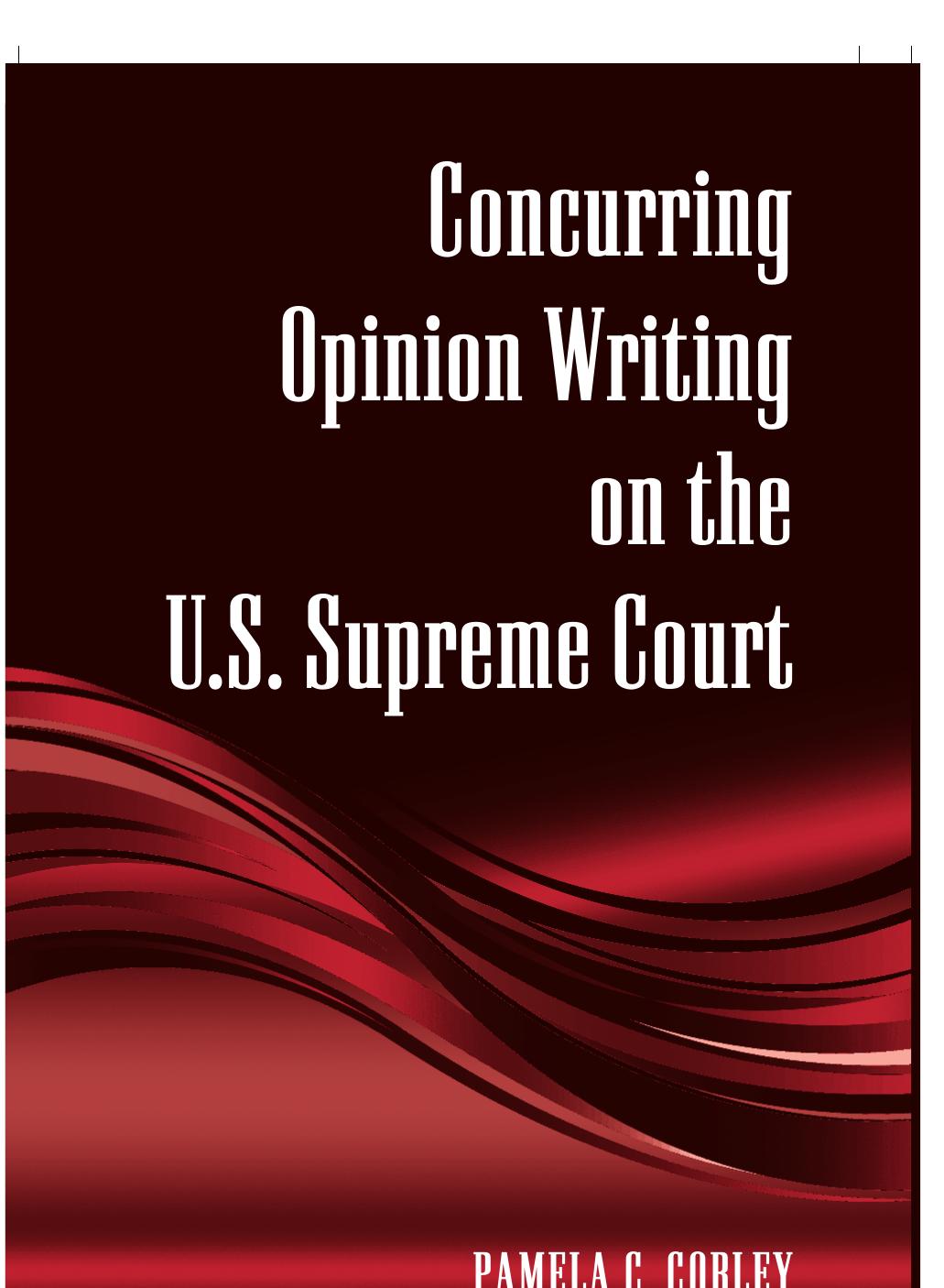Concurring Opinion Writing on the U.S. Supreme Court by Pamela C. Corley

Author:Pamela C. Corley [Corley, Pamela C.]
Language: eng
Format: epub, pdf
Tags: Judicial Branch, Judicial Power, Political Science, American Government, Law
ISBN: 9781438430683
Google: 4-wss8DLvVIC
Goodreads: 14998090
Publisher: SUNY Press
Published: 2010-03-24T07:37:58+00:00
Marshall received the following response from Stevens: âThanks for considering my suggestions. Since I think I am a little closer to Nino's position than yours with regard to Part III, I am joining his separate writing; that also means that I am joining your Parts I and IIâ (Marshall 1987p). Thus, it appears that since it was important to Marshall to address the issue by clarifying the law for the lower courts, he did not accommodate the justices and the result was a concurrence.
Griffith v. Kentucky (1987) provides another example of an unsuccessful negotiation that led to a concurrence. In Griffith, the issue was whether a newly declared constitutional rule was applicable to litigation pending on direct state or federal review or not yet final when the rule was decided. The newly declared constitutional rule at issue came from Batson, where the Court ruled that a defendant in a state criminal trial could establish a prima facie case of racial discrimination based on the prosecution's use of peremptory challenges to strike members of the defendant's race from the jury venire, and that, once the defendant had made the prima facie showing, the burden shifted to the prosecution to come forward with a neutral explanation for those challenges.
Regarding retroactivity, Justice John Marshall Harlan II had expressed his view in his concurrence in the judgment in Mackey v. United States (1971).
If we do not resolve all cases before us on direct review in light of our best understanding of governing constitutional principles, it is difficult to see why we should so adjudicate any case at all. ⦠In truth, the Court's assertion of power to disregard current law in adjudicating cases before us that have not already run the full course of appellate review, is quite simply an assertion that our constitutional function is not one of adjudication but in effect of legislation. (Mackey 1971, 679)
Download
Concurring Opinion Writing on the U.S. Supreme Court by Pamela C. Corley.pdf
This site does not store any files on its server. We only index and link to content provided by other sites. Please contact the content providers to delete copyright contents if any and email us, we'll remove relevant links or contents immediately.
The Secret History by Donna Tartt(19088)
The Social Justice Warrior Handbook by Lisa De Pasquale(12190)
Thirteen Reasons Why by Jay Asher(8910)
This Is How You Lose Her by Junot Diaz(6887)
Weapons of Math Destruction by Cathy O'Neil(6280)
Zero to One by Peter Thiel(5802)
Beartown by Fredrik Backman(5754)
The Myth of the Strong Leader by Archie Brown(5507)
The Fire Next Time by James Baldwin(5446)
How Democracies Die by Steven Levitsky & Daniel Ziblatt(5218)
Promise Me, Dad by Joe Biden(5153)
Stone's Rules by Roger Stone(5088)
A Higher Loyalty: Truth, Lies, and Leadership by James Comey(4964)
100 Deadly Skills by Clint Emerson(4925)
Rise and Kill First by Ronen Bergman(4789)
Secrecy World by Jake Bernstein(4753)
The David Icke Guide to the Global Conspiracy (and how to end it) by David Icke(4719)
The Farm by Tom Rob Smith(4511)
The Doomsday Machine by Daniel Ellsberg(4490)
